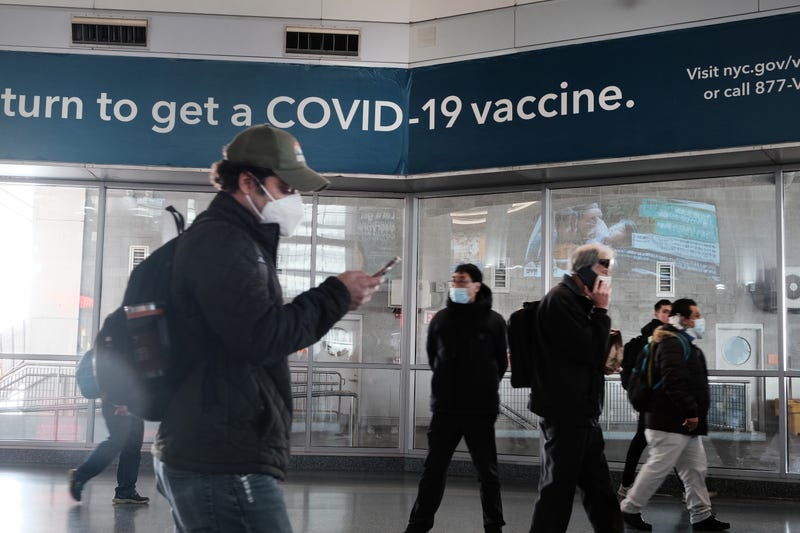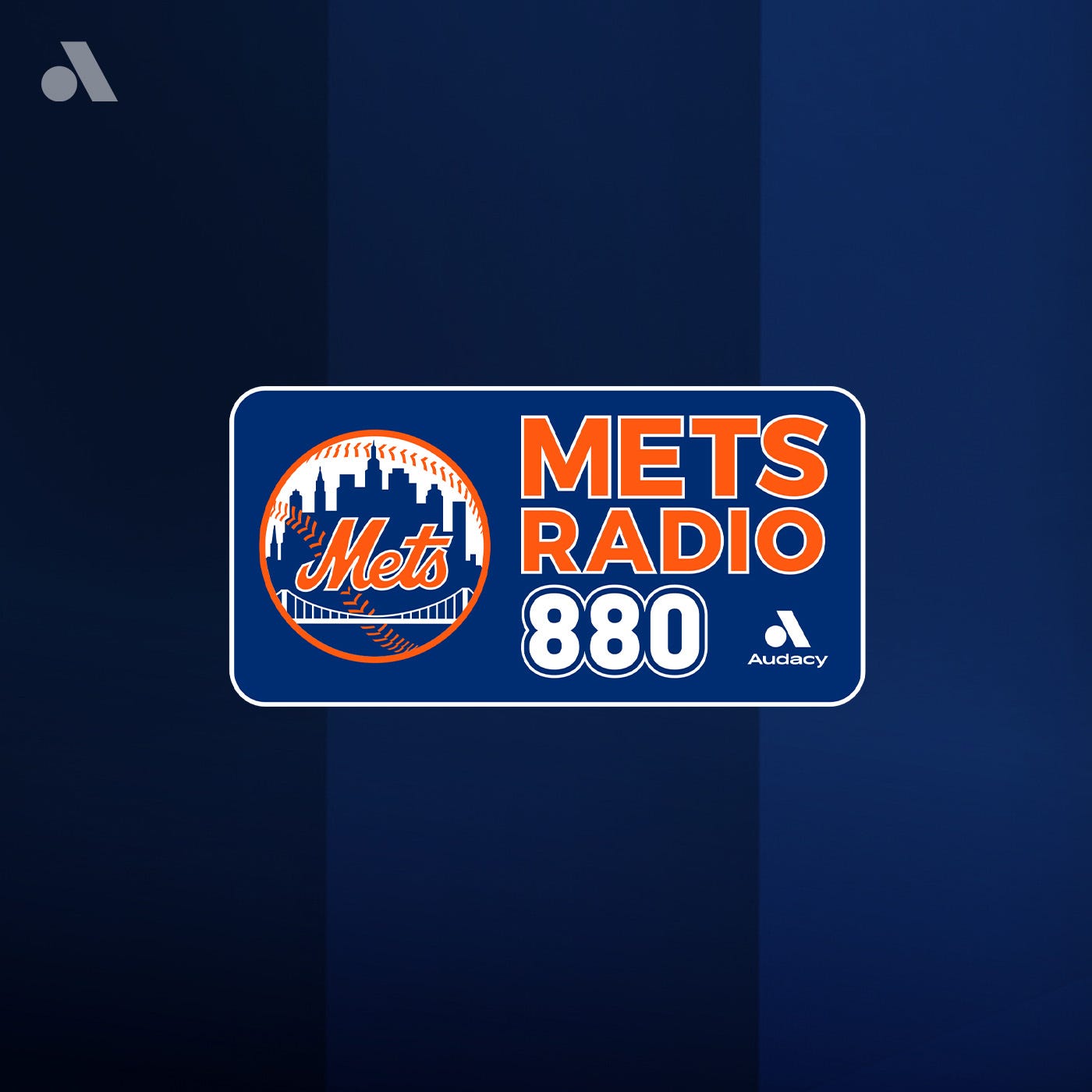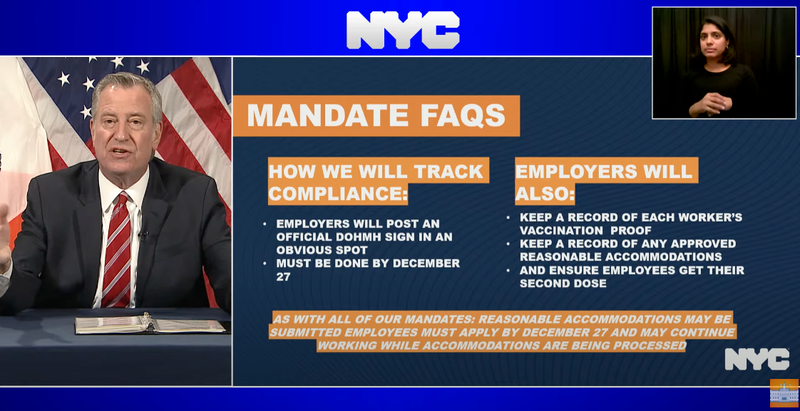
NEW YORK – Mayor Bill de Blasio on Wednesday laid out how the city will implement and enforce its upcoming COVID-19 vaccine mandate for private-sector workers.

De Blasio said the city was releasing guidance Wednesday to help inform businesses about how to handle the mandate, which takes effect on Dec. 27.
“This is the boldest action in the nation,” the mayor said at his daily briefing, adding that it was especially important amid concern about the omicron variant and as the winter months approach and people gravitate indoors.

As part of the mandate, employees who perform in-person work or interact with the public during the course of business must show proof to their employer that they’ve received at least one dose of a COVID-19 vaccine by Dec. 27. They will then have 45 days to show proof of their second dose (if they get the two-shot Pfizer or Moderna vaccine).
Non-employee workers, such as contractors, are also required to show proof of vaccination to their employers.
While employees must apply by Dec. 27, reasonable accommodations may be submitted, and employees may continue working while these accommodations are being processed.
After Dec. 27, businesses must prohibit unvaccinated workers from coming into their workplace, which is defined as “any location — including a vehicle — where you work in the presence of at least one other person.”
The mandate includes some exceptions, among them:
• People who work alone — at home or otherwise — and do not have in-person contact with co-workers or others in the course of their business.
• People who enter a workplace briefly for a limited purpose, such as to use the bathroom, make a delivery, clock in, or receive an assignment before leaving to begin a solitary assignment.
• Non-NYC resident performing artists, college or professional athletes, and anyone who accompanies them.
• People who have requested "reasonable" accommodations for medical or religious reasons. These accommodations must be approved.
The city is relying largely on employers to certify and enforce the mandate.
Employers must keep a record of each worker’s vaccination proof, as well as any approved reasonable accommodations. They must also ensure that employees get their second dose of a vaccine.
Additionally, businesses must complete a certificate by Dec. 27 affirming that they are in compliance with the requirement. The certificate must be posted in a public place, and the business should be prepared to make their vaccination records available for inspection.
More information for businesses and employees can be found at nyc.gov/vaxtowork.
When it comes to enforcement, de Blasio said, “the goal is not to penalize.” However, if a business refuses to comply, there are penalties that will grow with increasing non-compliance.
The mayor said he expects most businesses to comply, just as they have with “Key to NYC,” which requires people as young as 5 years old to show proof of vaccination at places like restaurants and entertainment venues in the city.



